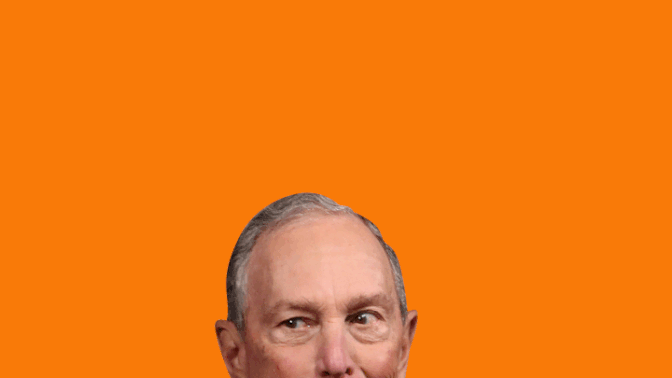It’s Friday, February 28. South Carolina’s open primaries on Saturday are the final test before Super Tuesday. And President Trump said he would nominate the House Republican John Ratcliffe as director of intelligence (if this sounds familiar, it’s because we’ve been here before).
In the rest of today’s newsletter: The guessing game of the stock market in the time of coronavirus fears. Plus: Is there anything Bloomberg’s money can’t buy?
*
« TODAY IN POLITICS »

(MARTIN LISNER / SHUTTERSTOCK / THE ATLANTIC)
American workers can’t afford to get coronavirus.
The risk of a real coronavirus outbreak in the United States has gone from being talked about as an outside chance to being talked about as a virtual inevitability. That alarming prospect has the stock market tanking, the Trump administration scrambling, and the CDC broadly advising Americans to stay home if they feel ill.
Sick days themselves are a luxury for a lot of Americans, as my colleague Amanda Mull has pointed out.
Even if a person in one of these jobs is severely ill—coughing, sneezing, blowing her nose, and propelling droplets of virus-containing bodily fluids into the air and onto the surfaces around her—asking for time off means missing an hourly wage that might be necessary to pay rent or buy groceries. And even asking can be a risk in jobs with few labor protections, because in many states, there’s nothing to stop a company from firing you for being too much trouble. So workers with no good options end up going into work, interacting with customers, swiping the debit cards that go back into their wallets, making the sandwiches they eat for lunch, unpacking the boxes of cereal they take home for their kids, or driving them home from happy hour.
+ The White House’s response has been … mixed. As our White House correspondent Peter Nicholas reported a few weeks ago, the president’s “instincts in the face of an outbreak that has left the world on edge risks making things worse.”
+ What is going on with the stock market? Joe Pinsker has this history of what happens when investors have to do a lot of guessing.
—Saahil Desai
*
« IDEAS AND ARGUMENTS »

(SARAH SILBIGER / GETTY)
1. “Sanders would be every holiday present rolled into one.”
That’s how Sean Spicer, the former White House press secretary, says the president’s reelection campaign and their allies view Bernie Sanders, the current Democratic front-runner. Whether Sanders wins or loses the nomination, President Trump believes he’ll benefit, Peter Nicholas reports.
2. “The Second Amendment in particular poses distinct problems for data searches, because it has multiple clauses layered in a complicated grammatical structure.”
Even with the help of robust 21st-century linguistic databases that stretch back to the founding era, the original meaning of the phrase “keep and bear arms” is still a question of heated debate, these scholars write.
3. “That runs counter to America’s commitment to freedom of speech. Immigration judges, more than anyone else in America’s bloated immigration bureaucracy, should be able to speak about how immigration law and policy are shaping the adjudication of cases that come before them.”
American immigration judges are functionally employees of the executive branch, but that means the Justice Department’s Executive Office for Immigration Review can effectively block them from speaking about immigration policy generally. A First-Amendment researchers writes about what he sees as the dangerous gagging of judges under Trump.
*
« WEEKEND READ »

(MARK WILSON / GETTY / THE ATLANTIC)
You can’t buy memes, Mike.
If you spend enough time on the internet, you may know about Democratic primary candidate Michael Bloomberg’s unorthodox campaign tactic of purchasing humorous jokes from popular Instagram accounts to promote his candidacy among the Youths™.
Our tech reporter Kaitlyn Tiffany explains why internet virality simply can’t be purchased:
Memes spread by imitation and iteration. They need to be remixed and repeated. (As with the recent spontaneously circulated image of Bernie Sanders in an oversize coat, saying, “I am once again asking,” or 2016’s “Nasty Woman” micro-economy.) Bloomberg’s images, in paid-for spots on meme accounts, are not really spreading; apart from a semipopular parody post that mocks the former mayor, there have been no major copy-pastes of his template.
*
Today’s newsletter was written by Saahil Desai, an editor on the Politics desk, and Christian Paz, a Politics fellow. It was edited by Shan Wang, who oversees newsletters.
You can reply directly to this newsletter with questions or comments, or send a note to politicsdaily@theatlantic.com.
Your support makes our journalism possible. Subscribe here.
from The Atlantic https://ift.tt/2uIQuuG






0 comments:
Post a Comment